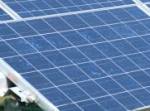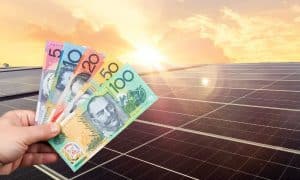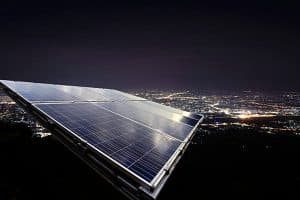Results of a study released earlier today show energy efficiency efforts and home solar power installations are reducing Australia’s mains grid supplied electricity consumption – and wholesale electricity prices too.
According to a report from REC Agents Association (RAA), over the last three years electricity consumption in the eastern states’ National Electricity Market (NEM) has dropped by 3.2 % (6,565 GWh).
Over half of that reduction is directly attributed to the installation of rooftop solar panels and solar hot water systems, plus energy efficiency initiatives supported by the New South Wales and Victorian governments.
RAA says one in five Australian families now have either a solar electric or solar hot water system. The number of systems claiming certificates under Australia’s Renewable Energy Target as at 31 March 2012:
Solar PV: 665,215 systems
Solar hot water : 723,923 systems
The contribution from solar energy and energy efficiency will only increase. By 2015, electricity consumption will be reduced by more than 5% – approximately 10,664 gigawatt hours. In terms of coal-fired production, this represents avoiding over 9 million tonnes of carbon dioxide emissions.
So why all the recent continual and looming major electricity price rises if the costs associated with wholesale electricity production are decreasing; in part thanks to solar power? Part of the problem is network costs claimed by Big Energy.
“It is the cost of transporting the electricity through monopoly network businesses that is out of control. The cost of actually producing the electricity is falling. Rising residential power prices have been caused by massive network investment (poles and wires) which has been passed on to consumers through higher charges,” says Ric Brazzale, author of the Report and the President of the RAA.
Mr. Brazzale says initiatives supporting solar and energy efficiency have been successful in reining in wholesale power prices; which have been at their lowest level in real terms for more than a decade.
“The challenge faced by policy makers is to address the runaway growth in network investment and to reduce rising peak summer demand caused by the installation of in-efficient air conditioners.”
The impact of a single type of appliance on peak demand is not an exaggeration. The rise of the air conditioner and accompanying peak power demand loads is well illustrated by looking to Queensland, where ten years ago only a quarter of Queensland homes were air-conditioned. Today, there are over 1.6 million air conditioners installed in 74 per cent of homes in the state.
“We have reduced power consumption now we need to turn our attention to reducing peak summer demand. The introduction of mandatory targets for electricity network businesses to reduce peak demand through investment in better and more efficient technologies that reduce peak demand would be a good start,” states Mr. Brazzale.
REC Agents Association represents registered agents that create Renewable Energy Certificates and other Environmental Credits. The report was prepared for RAA by Green Energy Markets.
Related:







































